
Omaruru: Namibia's Hidden Gem
Nestled in the heart of Namibia, Omaruru is a charming town that offers a unique blend of history, culture, and natural beauty. Known for its scenic landscapes and warm hospitality, Omaruru is a perfect destination for tourists seeking an authentic Namibian experience. The town is surrounded by rolling hills and picturesque vineyards, making it a haven for nature lovers and wine enthusiasts alike. Omaruru is also rich in cultural heritage. The town is home to several art galleries and craft markets, where you can find beautiful handmade items and artwork by local artists. The historic Franke Tower stands as a testament to the town's colonial past and offers a panoramic view of the surrounding area. For those interested in wildlife, the nearby Omaruru Game Park provides an opportunity to see a variety of animals in their natural habitat. Food lovers will find plenty to enjoy in Omaruru. The town boasts several restaurants and cafes that serve delicious local cuisine and freshly brewed coffee. Don't miss the chance to visit the Kristall Kellerei, Namibia's oldest winery, where you can sample some of the finest wines the region has to offer. Whether you're exploring the town's historic sites, indulging in local delicacies, or simply taking in the stunning views, Omaruru promises an unforgettable experience.
Local tips in Omaruru
- Visit the Kristall Kellerei winery for a unique wine-tasting experience.
- Take a guided tour of the historic Franke Tower for panoramic views.
- Explore local art galleries and craft markets for unique souvenirs.
- Plan your visit around the annual Omaruru Arts Festival for a vibrant cultural experience.
- Bring comfortable walking shoes for exploring the town and its scenic surroundings.
Omaruru: Namibia's Hidden Gem
Nestled in the heart of Namibia, Omaruru is a charming town that offers a unique blend of history, culture, and natural beauty. Known for its scenic landscapes and warm hospitality, Omaruru is a perfect destination for tourists seeking an authentic Namibian experience. The town is surrounded by rolling hills and picturesque vineyards, making it a haven for nature lovers and wine enthusiasts alike. Omaruru is also rich in cultural heritage. The town is home to several art galleries and craft markets, where you can find beautiful handmade items and artwork by local artists. The historic Franke Tower stands as a testament to the town's colonial past and offers a panoramic view of the surrounding area. For those interested in wildlife, the nearby Omaruru Game Park provides an opportunity to see a variety of animals in their natural habitat. Food lovers will find plenty to enjoy in Omaruru. The town boasts several restaurants and cafes that serve delicious local cuisine and freshly brewed coffee. Don't miss the chance to visit the Kristall Kellerei, Namibia's oldest winery, where you can sample some of the finest wines the region has to offer. Whether you're exploring the town's historic sites, indulging in local delicacies, or simply taking in the stunning views, Omaruru promises an unforgettable experience.
When is the best time to go to Omaruru?
Iconic landmarks you can’t miss
Erindi Private Game Reserve
Experience the breathtaking beauty of Erindi Private Game Reserve, a wildlife haven in Namibia with unforgettable safari adventures and luxurious lodgings.
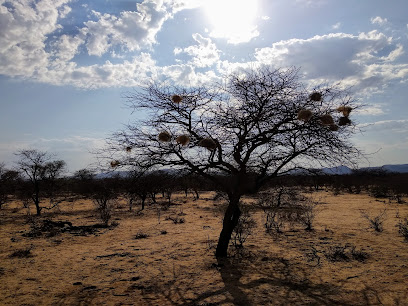
Omaruru Game Lodge
Discover the beauty of Namibia at Omaruru Game Lodge, where nature meets comfort in an unforgettable wildlife experience.

Ai Aiba - The Rock Painting Lodge
Discover the enchanting Ai Aiba - The Rock Painting Lodge, where ancient rock art meets modern comfort in the heart of Namibia's breathtaking landscapes.
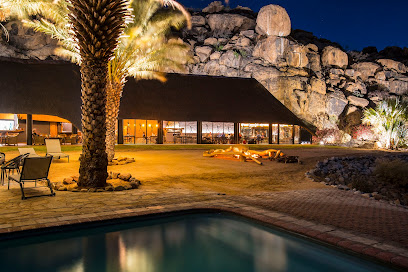
Kashana, Omaruru, Namibia
Experience the charm of Omaruru at Kashana, your cozy retreat in the heart of Namibia's rich cultural landscape.

Omaruru Guesthouse
Experience authentic Namibian hospitality at Omaruru Guesthouse, where comfort meets the beauty of the local culture.

Erongo Rocks - Farmhouse & Camping
Discover Erongo Rocks - a premier camping farm in Namibia perfect for hiking, bird watching, and enjoying the great outdoors.
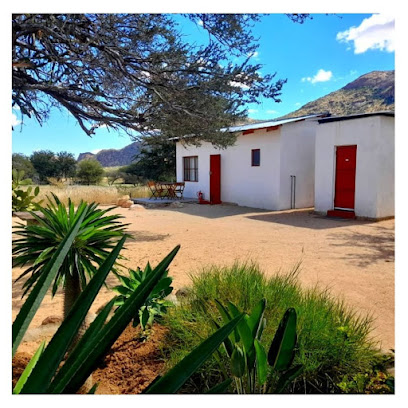
Evening Shade Self Catering
Experience the comfort of home at Evening Shade Self Catering in Omaruru, where exploration meets relaxation amid Namibia's stunning landscapes.

San Living Museum
Experience the vibrant culture and ancient traditions of the San people at the San Living Museum in Uigaran, Namibia.
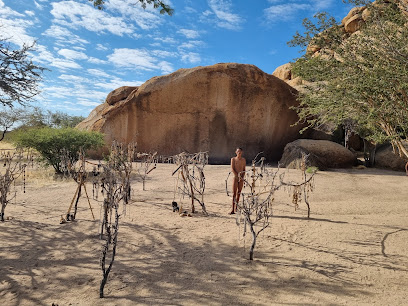
Omandumba Gästefarm & Camping
Discover the beauty of Namibia at Omandumba Gästefarm & Camping, where adventure meets comfort in a stunning natural setting.
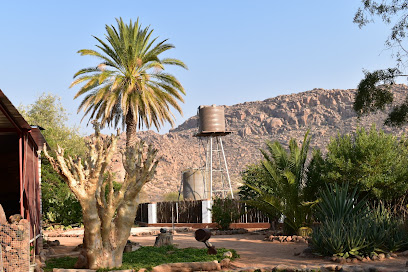
Erongo Mountain Winery
Experience the rich flavors of Namibia at Erongo Mountain Winery, where exquisite wines meet stunning landscapes in Omaruru.
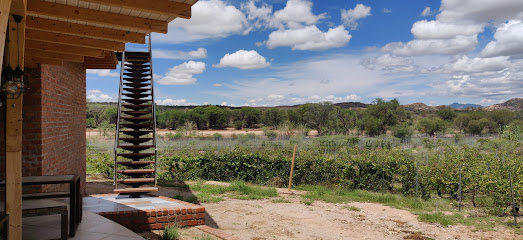
Ondudu Safari Lodge
Discover the beauty of Namibia at Ondudu Safari Lodge, where adventure meets tranquility amidst stunning natural landscapes.

Omaruru Rest Camp
Discover the flavors of Namibia at Omaruru Rest Camp, where local cuisine meets warm hospitality in a charming setting.
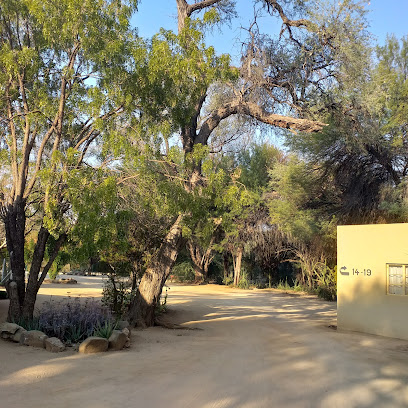
Tikoloshe Afrika
Explore the vibrant art and unique handicrafts at Tikoloshe Afrika, a cultural gem in Omaruru, showcasing Namibia's rich artistic heritage.
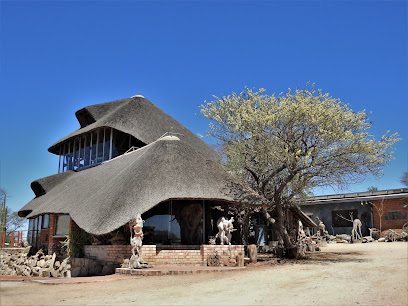
Epako Safari Lodge & Spa Relais & Châteaux
Discover a luxurious escape at Epako Safari Lodge & Spa, where nature meets comfort in the stunning landscapes of Omaruru, Namibia.
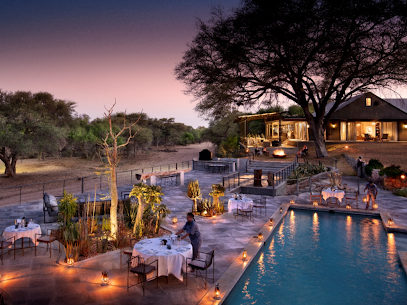
Otjohotozu Guestfarm
Discover the serene beauty of Otjohotozu Guestfarm in Omaruru, Namibia – a perfect blend of nature and comfort.

Unmissable attractions to see
Erindi Private Game Reserve
Explore the breathtaking landscapes and diverse wildlife at Erindi Private Game Reserve, a premier safari destination in Namibia.
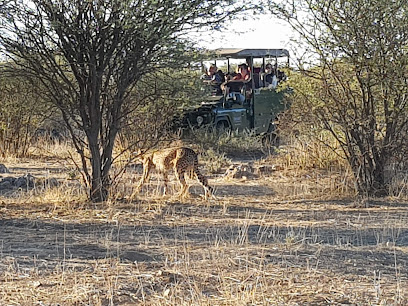
Omaruru Game Lodge
Discover the beauty of Namibia at Omaruru Game Lodge, where serene indoor lodging meets thrilling outdoor adventures in nature.

Tikoloshe Afrika
Explore Tikoloshe Afrika in Omaruru, where unique artistic handicrafts and local culture come together in a vibrant gallery experience.
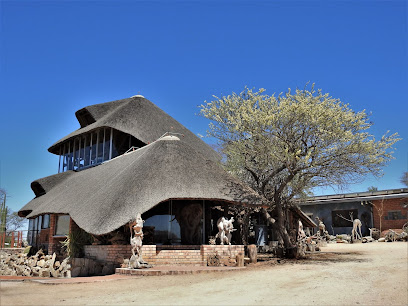
Erongo Plateau Camp
Discover the tranquil beauty of Erongo Plateau Camp, a perfect escape for nature lovers in the heart of Namibia's stunning landscapes.
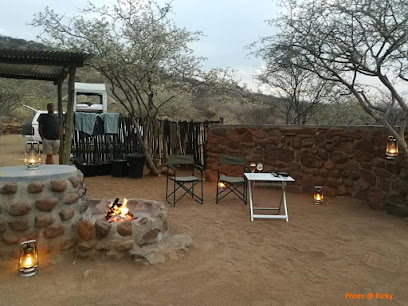
Dinosaur Camp (Mount Etjo Safari Lodge Campsite)
Experience the natural beauty and wildlife of Namibia at Dinosaur Camp, a serene campground within Mount Etjo Safari Lodge.
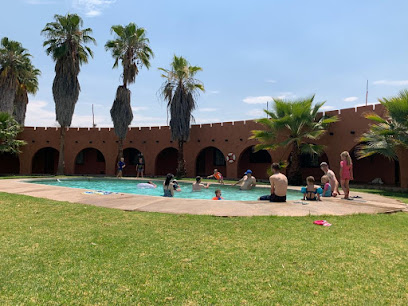
Bull's Party
Explore the captivating historical landmark of Bull's Party in Namibia, where rich heritage meets breathtaking natural beauty.
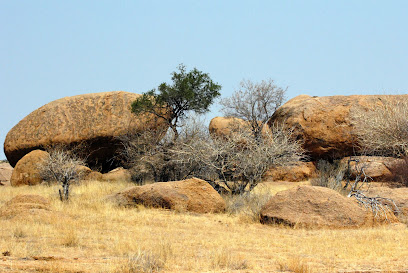
Kristall Kellerei
Explore the captivating Kristall Kellerei in Omaruru, where exceptional wines and stunning landscapes meet for an unforgettable winery adventure.
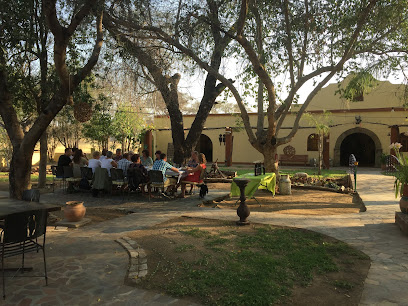
Gross Okandjou
Discover the tranquility of Namibia at Gross Okandjou, where horseback riding meets nature in a unique farm stay experience.
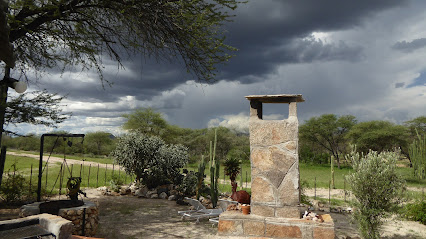
Philipps Cave
Explore the breathtaking beauty of Philipps Cave in the Erongo Mountains, a natural preserve showcasing stunning geological formations and diverse wildlife.
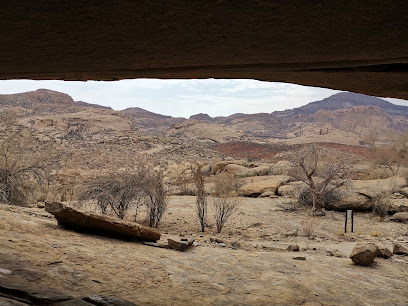
Okahandja- Karibib (Rest Area9)
Experience the tranquil beauty of Okahandja-Karibib Rest Area, the perfect stop for travelers exploring Namibia's stunning landscapes.
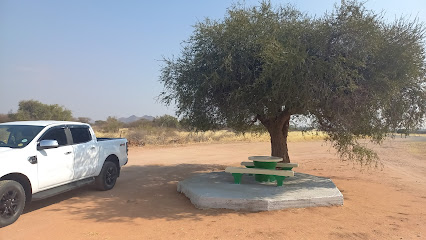
Golden Snake Fossil
Explore the Golden Snake Fossil in Namibia, a breathtaking tourist attraction that reveals the secrets of our planet's ancient past.
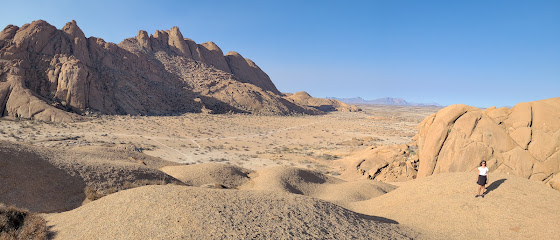
Ongeama Lodge
Experience tranquility and natural beauty at Ongeama Lodge, a unique tourist attraction in Okotjize, Namibia, perfect for relaxation and exploration.

Kanona Safari Camp
Experience the untamed beauty of Namibia at Kanona Safari Camp, where adventure and tranquility meet in a stunning natural setting.

Essential places to dine
Omaruru Game Lodge
Discover luxury and adventure at Omaruru Game Lodge in Namibia – where wildlife meets comfort in an unforgettable experience.

Kashana, Omaruru, Namibia
Discover comfort and local charm at Kashana in Omaruru, Namibia – your perfect indoor lodging retreat.

Omaruru Guesthouse
Discover comfort and warmth at Omaruru Guesthouse - your perfect base for exploring Namibia's enchanting landscapes.

Evening Shade Self Catering
Experience the charm of Omaruru with comfortable self-catering accommodations at Evening Shade - your home away from home in Namibia.

Central Hotel Omaruru
Discover authentic Namibian cuisine at Central Hotel Omaruru's inviting restaurant and relax in its picturesque garden setting.
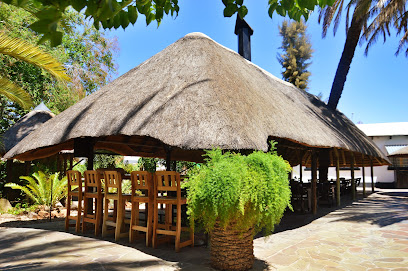
Main Street Café
Experience the charm of Main Street Café in Omaruru - where delicious local cuisine meets cozy ambiance.
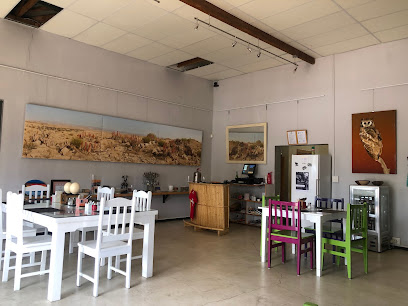
AP Lounge
Experience vibrant nightlife at AP Lounge in Omaruru - where refreshing drinks meet great company in an inviting atmosphere.
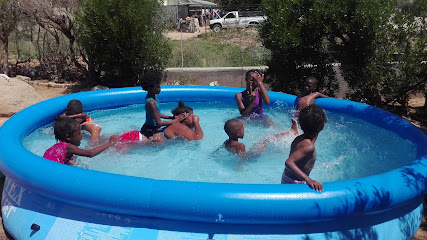
Omaruru
Explore Omaruru: A serene Namibian oasis offering stunning waterscapes and rich cultural experiences.
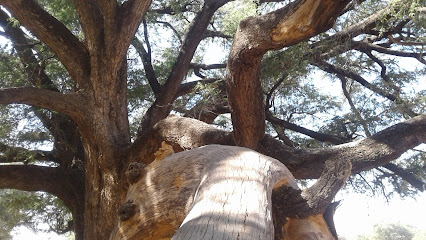
Erongo Mountain Winery
Experience the unique wines of Erongo Mountain Winery amidst stunning landscapes in Namibia.
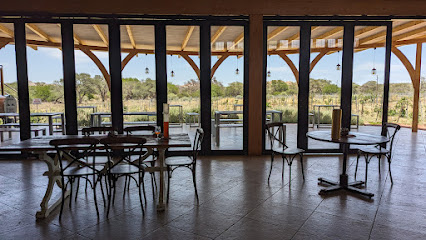
Omaruru Rest Camp
Discover authentic Namibian cuisine at Omaruru Rest Camp—where every meal is a journey into local flavors and hospitality.
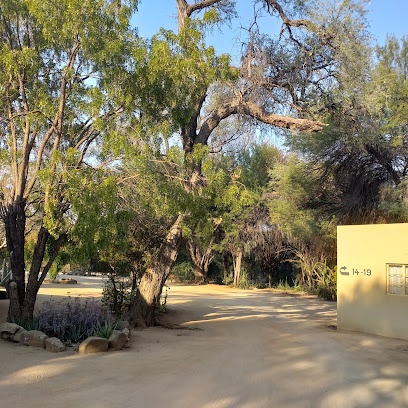
Tikoloshe Afrika
Explore Tikoloshe Afrika: A Unique Art Gallery Celebrating Namibian Handicrafts and Culture in Omaruru.
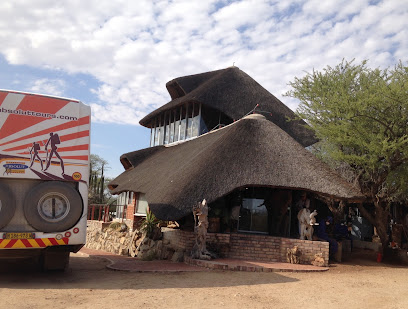
Omaruru Take Away &Bar
Discover authentic Namibian grilled cuisine at Omaruru Take Away & Bar – where flavor meets friendly service in a casual setting.
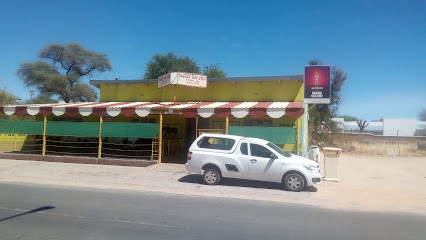
Erindi Lodge Game Viewing Deck
Experience exquisite dining at Erindi Lodge Game Viewing Deck while surrounded by Namibia's stunning wildlife in their natural habitat.
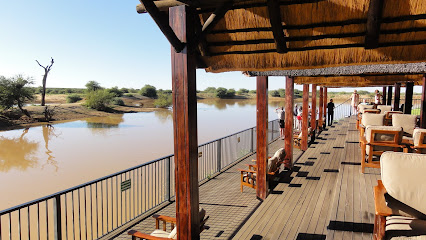
Ongwari Café
Discover Ongwari Café in Omaruru: A perfect blend of delicious local cuisine and aromatic coffee in a cozy setting.
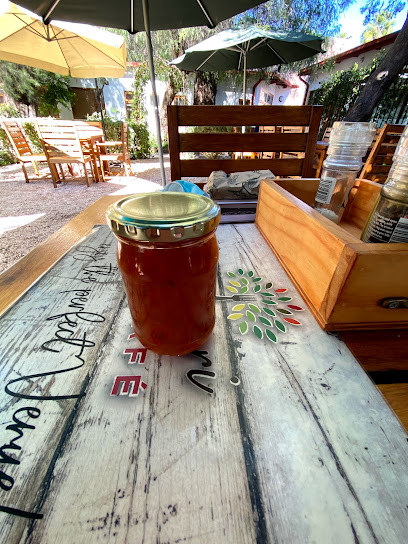
La Cava Pub and Grill Beer garden
Experience the vibrant atmosphere of La Cava Pub and Grill in Karibib - where great food meets refreshing drinks amidst stunning Namibian scenery.
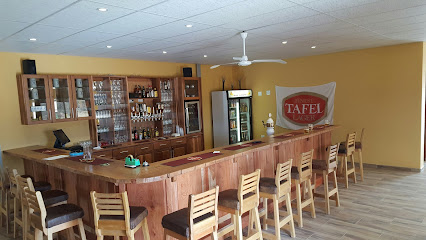
Markets, malls and hidden boutiques
Auas Valley Shopping Mall
Explore the vibrant Auas Valley Shopping Mall in Windhoek, a shopping haven featuring diverse stores, dining options, and entertainment for all ages.
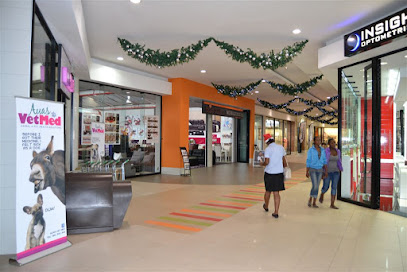
Omaruru SPAR
Omaruru SPAR: Your one-stop grocery destination in Omaruru, Namibia, offering local flavors and essential supplies for every traveler.
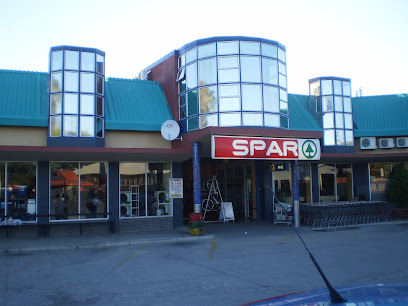
Omaruru Game Lodge
Discover the serene beauty of Namibia at Omaruru Game Lodge, where adventure meets comfort amidst breathtaking wildlife.

Kashana, Omaruru, Namibia
Experience the charm and comfort of Kashana in Omaruru, Namibia, your perfect lodging choice for exploring local culture and scenic beauty.

Evening Shade Self Catering
Discover comfort and convenience at Evening Shade Self Catering in Omaruru, your perfect base for exploring Namibia's natural beauty.

Central Hotel Omaruru
Experience the perfect blend of comfort and local culture at Central Hotel Omaruru, your ideal retreat in Namibia's charming town.
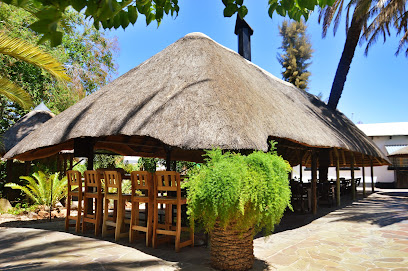
Usave Omaruru
Discover Usave Omaruru: Your essential grocery stop in Namibia, offering fresh produce and local goods at great prices.
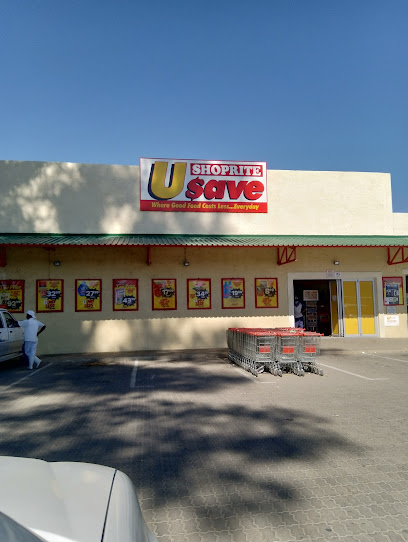
Main Street Café
Discover the cozy charm of Main Street Café in Omaruru, where local flavors and inviting ambiance create a perfect retreat for travelers.
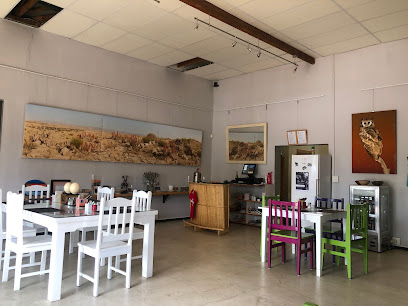
Erongo Mountain Winery
Experience the exquisite wines and stunning landscapes of Erongo Mountain Winery, a true gem in the heart of Namibia's Omaruru.
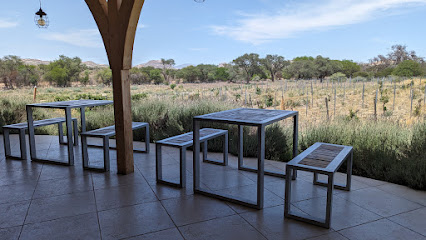
Tikoloshe Afrika
Explore the vibrant artistic culture of Namibia at Tikoloshe Afrika, where local handicrafts and art come together to tell unique stories.
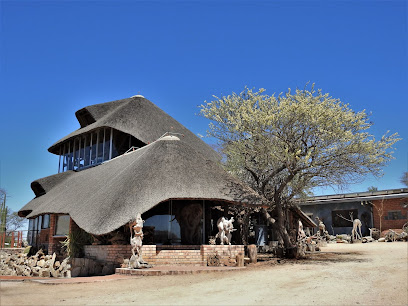
Epako Safari Lodge & Spa Relais & Châteaux
Discover the ultimate blend of luxury and wildlife at Epako Safari Lodge & Spa in Omaruru, Namibia - a haven for nature lovers and adventure seekers.
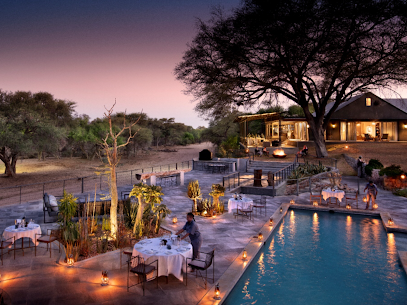
Otjohotozu Guestfarm
Experience the serene beauty of Namibia at Otjohotozu Guestfarm, where comfort meets nature in the heart of Omaruru.

Ongwari Café
Experience the cozy ambiance and local flavors at Ongwari Café in Omaruru, Namibia, where every sip and bite tells a story.
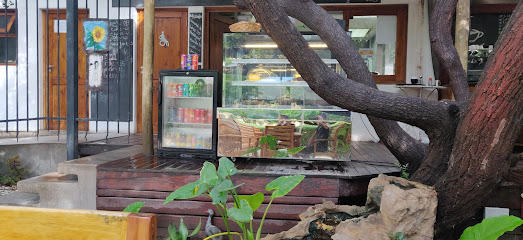
Omurenga Lodge
Discover a serene escape at Omurenga Lodge, where adventure and relaxation meet in the heart of Namibia's breathtaking landscapes.

Woermann Brock Supermarket
Explore local flavors and unique artisan products at Woermann Brock Supermarket in Omaruru, a must-visit for culinary enthusiasts.
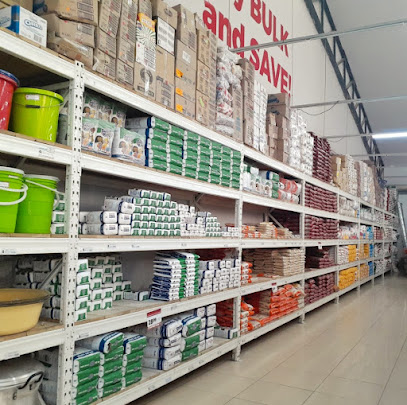
Essential bars & hidden hideouts
Omaruru SPAR
Explore the vibrant offerings of Omaruru SPAR, your ultimate grocery destination in the heart of Namibia, featuring local delicacies and fresh produce.
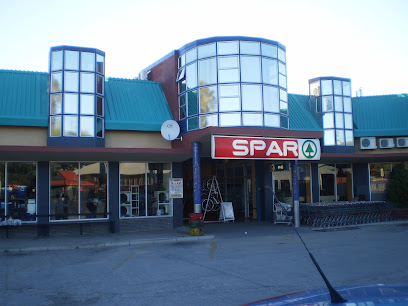
Kashana, Omaruru, Namibia
Discover comfort and authenticity at Kashana, a serene indoor lodging experience in Omaruru, Namibia, perfect for exploring the region's rich culture.

Omaruru Guesthouse
Experience the warmth of Namibian hospitality at Omaruru Guesthouse, your charming base for adventure in the heart of Omaruru.

Evening Shade Self Catering
Experience the comfort of home at Evening Shade Self Catering, your perfect retreat in the heart of Omaruru, Namibia.

Central Hotel Omaruru
Discover the charm of Omaruru at Central Hotel, your perfect blend of comfort, cuisine, and local culture in Namibia.
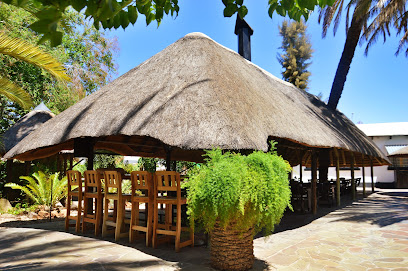
Usave Omaruru
Discover the essence of local flavors at Usave Omaruru, your essential grocery stop in the heart of Namibia.
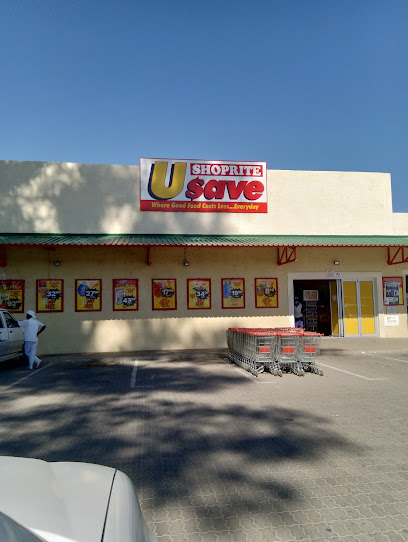
Main Street Café
Discover the charm of Main Street Café in Omaruru, where delicious cuisine meets a cozy atmosphere perfect for relaxation and socializing.
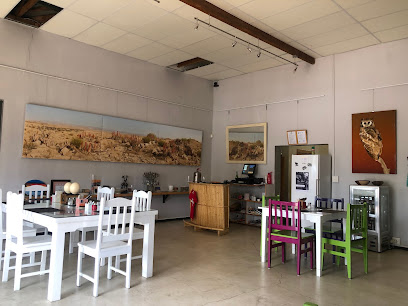
AP Lounge
Discover the vibrant nightlife of Omaruru at AP Lounge, a premier bar offering a delightful atmosphere and a wide selection of drinks.
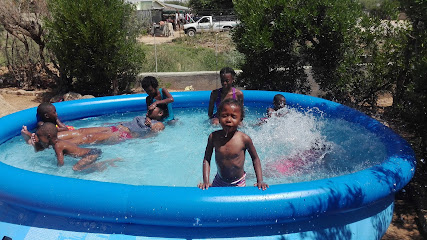
River Guesthouse
Discover comfort and adventure at River Guesthouse, the perfect retreat in Omaruru, Namibia, blending tranquility with local charm.

Omaruru Rest Camp
Discover the flavors of Namibia at Omaruru Rest Camp, a serene dining oasis that blends local cuisine with stunning landscapes.
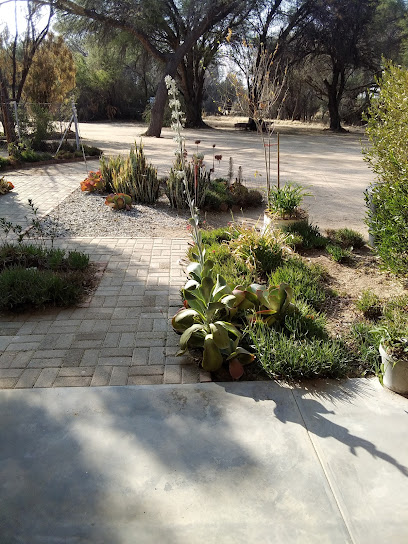
Omaruru Take Away &Bar
Discover the flavors of Namibia at Omaruru Take Away & Bar, where delicious grilled meals meet a warm local atmosphere.
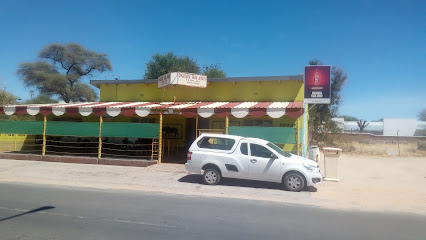
Ongwari Café
Discover the charm of Ongwari Café in Omaruru, where exceptional coffee and a cozy atmosphere come together for an unforgettable experience.
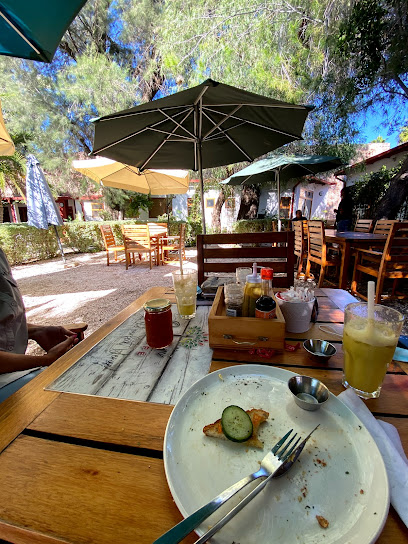
La Cava Pub and Grill Beer garden
Experience the vibrant flavors and welcoming atmosphere at La Cava Pub and Grill, a must-visit bar and restaurant in Karibib, Namibia.
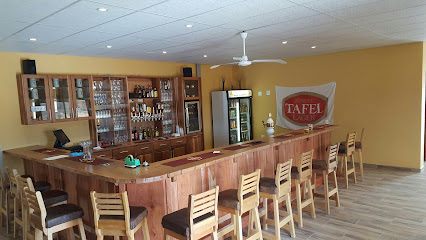
Omaruru Caravan Park
Discover peace and adventure at Omaruru Caravan Park, your ideal base for exploring Namibia's captivating landscapes and rich culture.
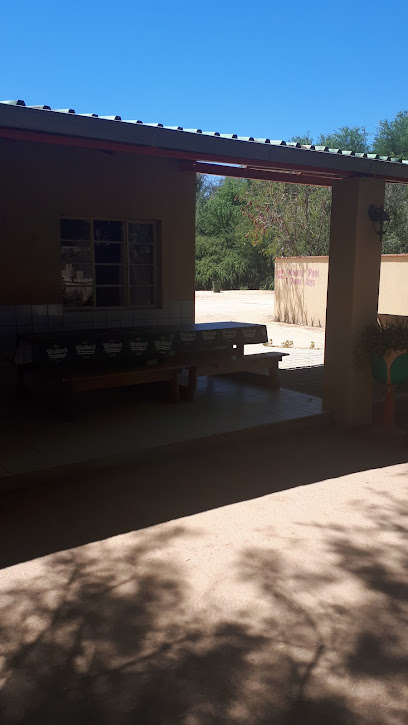
Local Phrases
-
- HelloHallo
[ha-lo] - GoodbyeTotsiens
[toat-ziens] - YesJa
[ya] - NoNee
[nee] - Please/You're welcomeAsseblief
[ah-se-blief] - Thank youDankie
[dun-kee] - Excuse me/SorryVerskoon my
[fer-skoon may] - How are you?Hoe gaan dit met jou?
[hoo khan dit met yo] - Fine. And you?Goed. En met jou?
[khut. en met yo] - Do you speak English?Praat jy Engels?
[prat ye en-gels] - I don't understandEk verstaan nie
[eck verst-an nee]
- HelloHallo
-
- I'd like to see the menu, pleaseEk wil graag die spyskaart sien, asseblief
[eck vil khraaig dee spay-skaart seen, ah-se-blief] - I don't eat meatEk eet nie vleis nie
[eck ait nee flay-s nee] - Cheers!Gesondheid!
[guh-sund-hate] - I would like to pay, pleaseEk wil graag betaal, asseblief
[eck vil khraaig buh-taal, ah-se-blief]
- I'd like to see the menu, pleaseEk wil graag die spyskaart sien, asseblief
-
- Help!Help!
[help] - Go away!Gaan weg!
[khaan vayg] - Call the Police!Bel die Polisie!
[bell dee po-lee-see] - Call a doctor!Bel 'n dokter!
[bell un dock-ter] - I'm lostEk is verlore
[eck is fuh-lohr] - I'm illEk is siek
[eck is seek]
- Help!Help!
-
- I'd like to buy...Ek wil koop...
[eck vil kohp] - I'm just lookingEk kyk net
[eck kike net] - How much is it?Hoeveel kos dit?
[hoo-fail kohs dit] - That's too expensiveDit is te duur
[dit is tay duur] - Can you lower the price?Kan jy die prys verlaag?
[kahn yee dee prayss fay-laahg]
- I'd like to buy...Ek wil koop...
-
- What time is it?Hoe laat is dit?
[hoo laht is dit] - It's one o'clockDit is een uur
[dit is ain ur] - Half past (10)Half tien
[half teen] - MorningOggend
[oh-khent] - AfternoonMiddag
[mid-dakh] - EveningAand
[ahnt] - YesterdayGister
[khist-er] - TodayVandag
[fun-dahg] - TomorrowMôre
[mo-reh] - 1Een
[ain] - 2Twee
[tuh-vee] - 3Drie
[dree] - 4Vier
[feer] - 5Vyf
[fayf] - 6Ses
[says] - 7Sewe
[say-vee] - 8Agt
[ahgt] - 9Nege
[nay-guh] - 10Tien
[teen]
- What time is it?Hoe laat is dit?
-
- Where's a/the...?Waar's 'n/die...?
[vahrss un/dee] - What's the address?Wat is die adres?
[vat is dee ah-dres] - Can you show me (on the map)?Kan jy my wys (op die kaart)?
[kahn yee may vays (op dee kart)] - When's the next (bus)?Wanneer is die volgende (bus)?
[vun-ear is dee full-hen-de (bus)] - A ticket (to ....)'n Kaartjie (na ....)
[un kart-yuh (nah)]
- Where's a/the...?Waar's 'n/die...?
History of Omaruru
-
Omaruru, situated in central Namibia, was originally inhabited by the San people, who lived as hunter-gatherers in the region. The town itself was officially founded in 1863 by Wilhelm Zeraua, a leader of the Herero people, who sought refuge from the warring Nama tribes. Omaruru quickly became an important trade hub for the surrounding areas.
-
In the late 19th century, Namibia, then known as German South West Africa, came under German colonial rule. Omaruru became a significant location for German settlers. In 1904, during the Herero and Namaqua genocide, Omaruru was the site of several confrontations between the German colonial forces and the local Herero people. Despite the conflict, German architectural influences can still be seen in many of Omaruru's buildings.
-
One of the key historical events in Omaruru was the Battle of Omaruru, which took place in February 1904. The Herero people, led by Chief Samuel Maharero, launched an attack against the German fort in Omaruru. Although the Herero forces initially had the upper hand, the Germans eventually repelled the attack. This battle was part of a larger conflict that had lasting repercussions on the Herero population.
-
Omaruru, like the rest of Namibia, experienced significant changes after the end of World War I when the territory came under South African administration. The town continued to develop, albeit slowly, during this period. Namibia eventually gained independence from South Africa on March 21, 1990. Since then, Omaruru has grown into a vibrant community, blending its rich historical past with modern development.
-
Today, Omaruru is known for its cultural diversity and vibrant arts scene. The town hosts the annual Omaruru Arts Festival, which attracts artists and visitors from all over Namibia and beyond. The event showcases local crafts, music, and performances, celebrating the town's artistic heritage. Additionally, the annual Wine Festival highlights Omaruru's growing reputation as a center for viticulture in Namibia.
-
Omaruru boasts several historical landmarks that reflect its rich history. The Franke Tower, built in 1907, commemorates Captain Victor Franke, a German officer who played a significant role in the colonial wars. The Omaruru Museum, housed in the old German fort, offers a comprehensive look at the town's history, including exhibits on the indigenous peoples, colonial era, and post-independence developments. The Kristall Kellerei winery is another notable site, representing the town's modern-day cultural and economic activities.
Omaruru Essentials
-
Omaruru is located in the Erongo Region of Namibia. The nearest international airport is Hosea Kutako International Airport in Windhoek, approximately 240 kilometers away. From Windhoek, you can rent a car or take a shuttle service to Omaruru. The drive typically takes around 3 hours via the B2 national road. Alternatively, you can catch a domestic flight to the smaller Karibib airstrip, which is about 60 kilometers from Omaruru, and then take a taxi or shuttle.
-
Omaruru is a small town, and many of its attractions are within walking distance. Local taxis are available for longer trips within the town and surrounding areas. Car rentals are also an option if you wish to explore more of the Erongo Region at your own pace. There is no local public bus service, but private shuttles can be arranged for excursions.
-
The official currency in Namibia is the Namibian Dollar (NAD), which is pegged to the South African Rand (ZAR). Credit cards are widely accepted in hotels, restaurants, and most shops. However, it is advisable to carry some cash, especially when visiting smaller establishments and rural areas. ATMs are available in Omaruru, but it is always a good idea to have some cash on hand.
-
Omaruru is generally considered a safe destination for tourists. However, like any travel destination, it is advisable to take standard precautions. Avoid walking alone at night in unfamiliar areas and always keep an eye on your belongings in crowded places. There are no known high-crime areas targeting tourists, but staying vigilant is always a good practice.
-
In case of an emergency, dial 10111 for police assistance or 10177 for medical emergencies. The local police station and a small medical clinic are available in Omaruru. It is recommended to have travel insurance that covers medical emergencies. For minor health issues, there are pharmacies in the town where you can purchase over-the-counter medications.
-
Fashion: Do dress modestly, especially in more conservative areas. Avoid wearing overly revealing clothing. Religion: Do respect local customs and traditions. When visiting churches or religious sites, dress modestly and remove hats. Public Transport: Do be respectful and courteous. Although public buses are not common, if you use private shuttles or taxis, avoid eating or drinking. Greetings: Do greet people with a handshake and a smile. It's polite to use formal titles when addressing elders. Eating & Drinking: Do try local dishes and be open to new culinary experiences. Don't waste food, as it is considered disrespectful.
-
To experience Omaruru like a local, visit the local markets where you can buy handmade crafts and fresh produce. Engage with locals, as they are often friendly and willing to share their stories and culture. Don't miss the opportunity to visit local wineries and sample their unique Namibian wines. For a unique experience, take a stroll along the Omaruru River and explore the nearby Erongo Mountains for stunning views and hiking opportunities.
Trending Landmark in Omaruru
-
Erindi Private Game Reserve
-
Omaruru Game Lodge
-
Ai Aiba - The Rock Painting Lodge
-
Kashana, Omaruru, Namibia
-
Omaruru Guesthouse
-
Erongo Rocks - Farmhouse & Camping
-
Evening Shade Self Catering
-
San Living Museum
-
Omandumba Gästefarm & Camping
-
Erongo Mountain Winery
-
Ondudu Safari Lodge
-
Omaruru Rest Camp
-
Tikoloshe Afrika
-
Epako Safari Lodge & Spa Relais & Châteaux
-
Otjohotozu Guestfarm
Nearby Cities to Omaruru
-
Things To Do in Karibib
-
Things To Do in Usakos
-
Things To Do in Okahandja
-
Things To Do in Otjiwarongo
-
Things To Do in Outjo
-
Things To Do in Windhoek
-
Things To Do in Swakopmund
-
Things To Do in Walvis Bay
-
Things To Do in Etosha Village
-
Things To Do in Tsumeb
-
Things To Do in Oshakati
-
Things To Do in Ongwediva
-
Things To Do in Mariental
-
Things To Do in Rundu
-
Things To Do in Lüderitz







